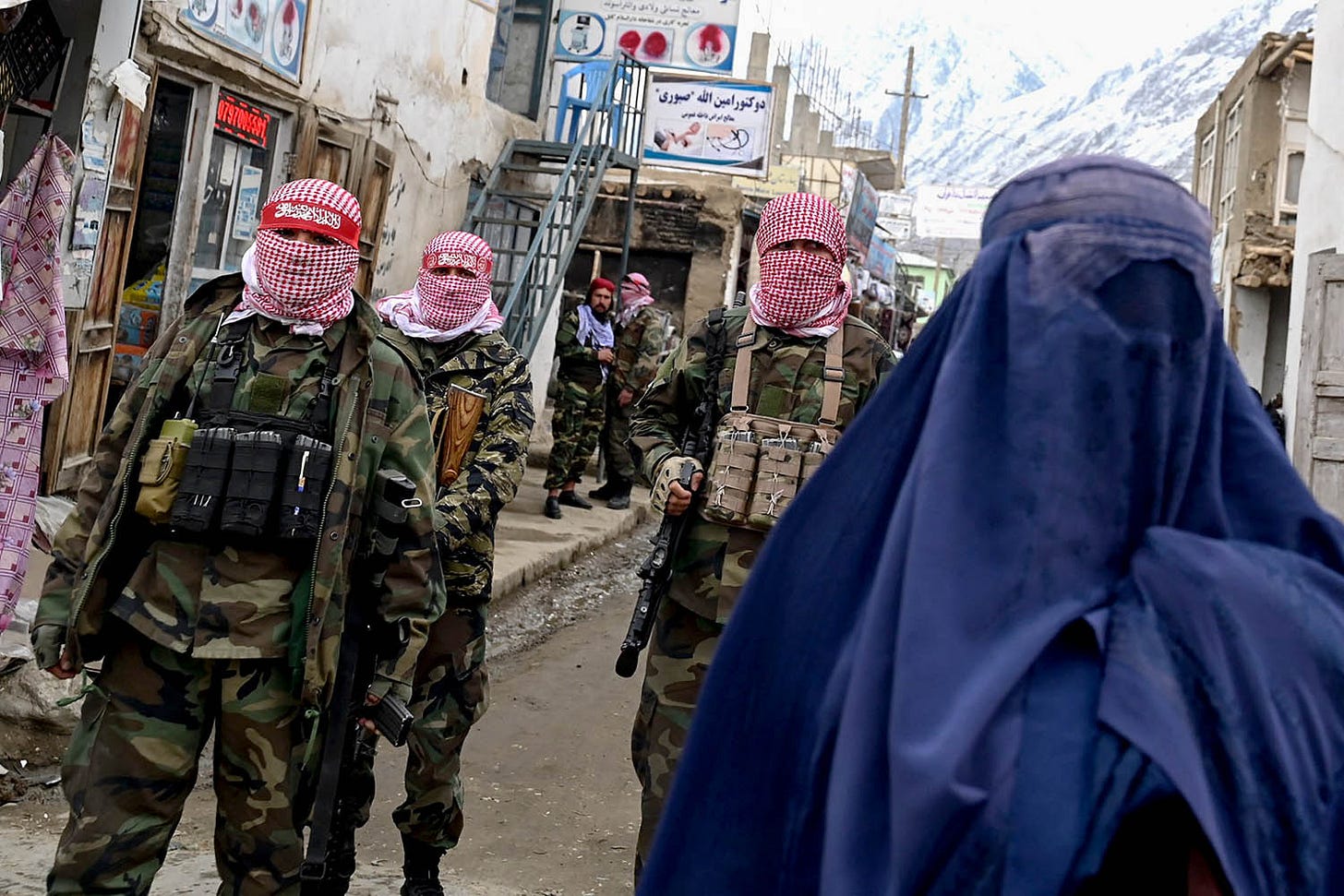Afghans Continue to Bear the Cost of Two Decades of Us Occupation
The People Face Extreme Economic Difficulties and Deteriorating Human Rights

Three years after the Taliban forcefully seized control of Afghanistan from a US-backed administration, the world continues to fail the people of Afghanistan. The international community has been unwilling to effectively engage with the current authorities and provide meaningful support to millions of people who have experienced decades of economic hardship and human rights violations.
While it can be argued that the Taliban administration was successful in stabilizing the political chaos that characterized two decades of US occupation, the economic situation remains grim. According to United Nations data, poverty levels, which edged towards 97% by the end of 2021, have seen only slight improvement, with more than 85% of the population still living in poverty at the beginning of this year.
The situation is exacerbated by forced displacement and hunger. Over 6 million people remain internally displaced, and almost 60% are dependent on humanitarian aid. Save the Children estimated that 6.5 million children – close to one third of all children in Afghanistan – would face catastrophic levels of hunger this year.
After years of drought, Afghanistan has recently been hit by floods and earthquakes, killing hundreds and causing massive damage to infrastructure. The government was not equipped with the necessary resources to manage such disasters without international support, which led to further economic deterioration. Thousands have lost their jobsand means of livelihood, further deepening the country’s economic crisis.
The crisis might escalate further as millions of Afghan refugees are set to return from Pakistan and Iran this year, without any prospect of economic sustenance.
US bears responsibility for suffering in Afghanistan
The Taliban administration is facing structural challenges aggravated by the decades-long US occupation. Taimur Rahman, leader of the Mazdoor Kisan Party in Pakistan, told Peoples Dispatch: “While resources were poured into security and into [the] coffers of various state officials and warlords, there was no serious plan for economic development. Aside from [becoming] an enclave economy entirely dependent on US funds, Afghanistan experienced no fundamental change in terms of the lived experiences of the majority of its inhabitants.”
Today, the US is withholding billions of dollars in Afghan assets, cutting off a crucial economic lifeline for the people of Afghanistan. With scarce international aid, a lack of domestic economic resources, and the world virtually ceasing all engagements with the country, Afghanistan’s recovery from a decades-long crisis faces further delays.
Women and minorities are particularly exposed to the worsening human rights situation. This has been the main argument for countries refusing to officially recognize the so-called Islamic Emirate of Afghanistan and for international donors to withdraw or reduce their contributions. Despite years of engagement with the Taliban prior to its humiliating defeat and withdrawal three years ago, the US is now actively working to keep the country isolated based on the group’s human rights record.
Earlier this year, the UN initiated talks to develop mechanisms for engaging with the Taliban, but participants failed to reach a common agreement. The most frequently cited reason for their reluctance was the status of women in the country.
According to a recent UNESCO report, nearly 2.5 million Afghan girls—almost 80% of all school-aged girls in the country—have been deliberately deprived of schooling based on the Taliban’s interpretation of women’s rights in Islam, making Afghanistan the only country in the world to impose such restrictions.
The Taliban government continues to disregard denunciations of its regressive treatment of women, who, in addition to being barred from education, are not allowed to work, travel alone, or visit parks. This has sparked further reactions in the international arena, but these efforts have had little effect, according to a statement released by nine human rights organizations on 15 August.
“The international response to worsening Taliban human rights violations, especially against women and girls, is increasingly ineffective and sometimes even harmful,” the organizations wrote.
Taliban hardens stance on human rights
Instead of lifting some of the restrictions, the Taliban recently hardened its stance on human rights. This week, the government blocked UN Special Rapporteur Richard Bennett from entering the country, accusing him of “spreading propaganda” against the administration. The Taliban claimed Bennett’s reports are based on “prejudices and anecdotes.”
Bennett was appointed Special Rapporteur on the situation of human rights in Afghanistan in 2022. He had earlier claimed that the Taliban’s treatment of women could amount to a crime against humanity.
It seems the world has no idea how to address the problems faced by the people of Afghanistan. The US, which itself promoted the idea of a “good Taliban” and engaged with the group despite being aware of its positions on women, cannot escape responsibility for shaping the current situation.
The fact that “as soon as the US left Afghanistan, the country was taken over by the Taliban with its regressive policies,” is proof that the US had set the wrong priorities during its two decades in the country, promoting such forces at the expense of its people, says Taimur Rahman.



